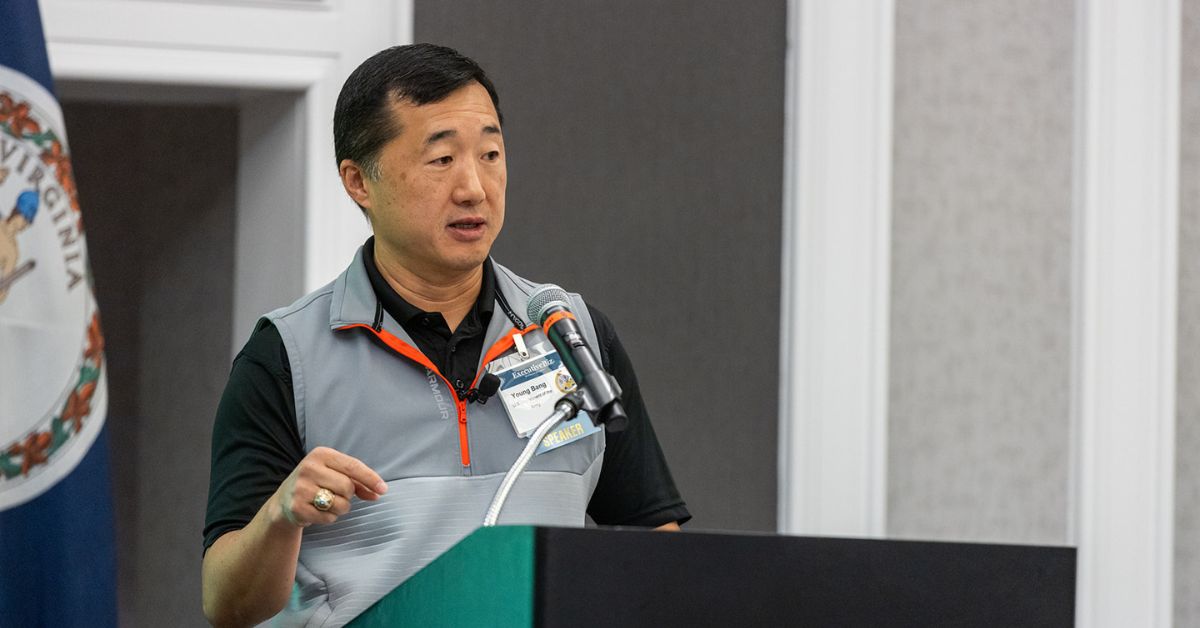Top U.S. Army officials have declared that they see a collaborative and “reciprocal relationship” with industry as key to getting new technologies into the hands of warfighters at a faster rate. Among the Department of Defense component’s tech focus areas are artificial intelligence, counter-drone systems and long-range precision fires.
Young Bang, principal deputy assistant secretary of the Army for acquisition, logistics and technology and a former Booz Allen Hamilton executive, has long been a champion of public-private partnership.
“You all have some amazing expertise. I think it’s great to get a room together with leaders as well as industry so we can spin and riff off each other and understand the technology and capabilities you have,” Bang — a 2024 Wash100 Award winner — said at an Association of the U.S. Army event last week.
Hear Bang share exclusive insights alongside a robust lineup of Army representatives at Potomac Officers Club’s 2024 Army Summit! On June 13 at the Ritz-Carlton, Pentagon City, an unbeatable lineup of speakers will dialogue with the government contracting industry’s best and brightest about how to build a synergistic cross-market strategy. Register here now!
AI in the Army
Launched in 2022, Project Linchpin is the Army’s initiative spearheading AI integration with weapons, tools and missions. It is charged with ensuring that AI systems built both internally and externally can be trusted and relied upon.
Bang told DefenseScoop that Project Linchpin has leaned on the industrial base for guidance: there have been four major requests for information from the Army since Linchpin’s launch in November 2022, through which they’ve amassed “well over” 500 data points. Army officials have also held meetings with north of 250 companies on the subject.
“In [fiscal 2025], in the next year or so, we’re predicting a significant investment in our SBIR program towards AI in particular — again, strategically aligned with Project Linchpin, [that’s] potentially up to or more than $150 million. So, that’s about 40% of the program, and this really demonstrates our commitment to innovation, to AI and how small businesses across the country can certainly contribute to the Army,” said Matt Willis, director of Army prize competitions and the Small Business Innovation Research program.
After all of this data collection and assessment, the service branch is moving toward a point where the fruits of Linchpin can see real results: the Tactical Intelligence Targeting Access Node, or TITAN, program is the first enterprise that could be activated using algorithms sourced by Project Linchpin.
Bang said that the Army is further partnering with private companies for the development of an AI cyber risk reduction framework, as well as discussions on AI bills of materials, or AI BOMs.
Other industry-Army accelerators
Beyond the RFIs and meetings regarding AI, the Army has been increasingly favorable toward the middle-tier acquisition authority as an accelerator of new capabilities. MTAs can cause a piece of technology to be fielded at the “lightning fast” speed of two years after a requirement’s issuance, according to Bang.
And in addition to the aforementioned AI, counter-drone systems and long-range precision fires, the service branch is eager to tap into private sector innovations in electronic warfare, loitering munitions, predictive logistics and maintenance and bridging capabilities.
“We’ve got to make sure we have operational readiness rates at levels that can support the fight,” Bang stressed.
Join Young Bang, Hon. Doug Bush, newly appointed Army Chief Information Officer Leonel Garciga and many more at the 2024 Army Summit. This is Potomac Officers Club’s ninth annual, all-day deep dive into how to condense timelines and ramp up production for the most pressing Army needs. Don’t miss out on one of the major GovCon networking opportunities of the year!




